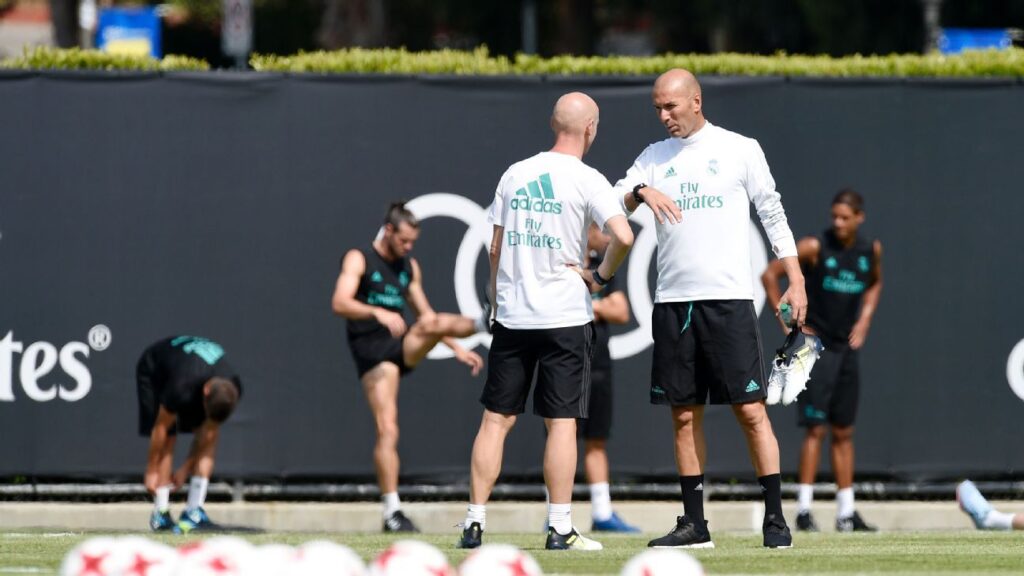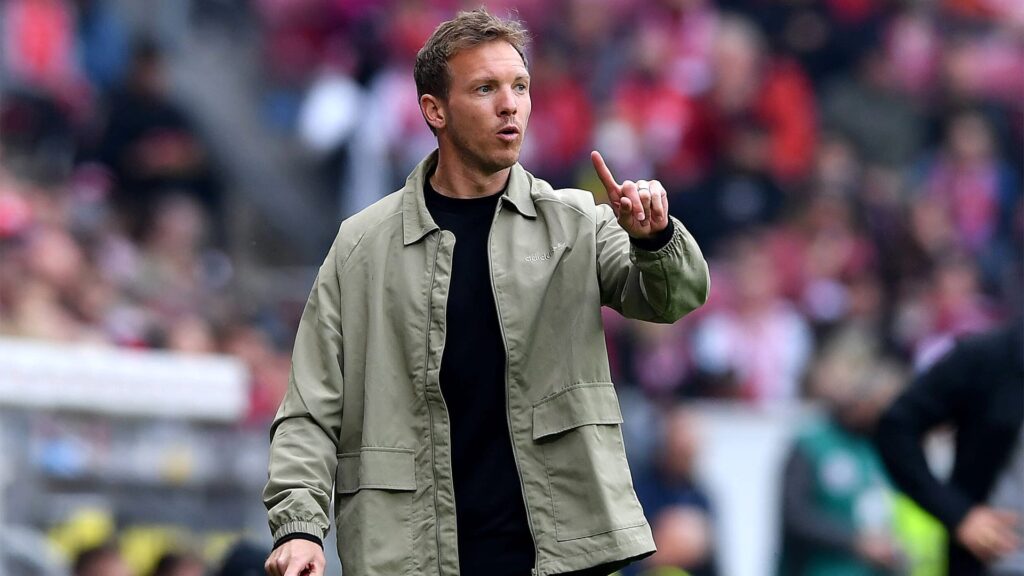In the high-pressure world of football, the role of the professional football coach is constantly evolving. Yet one question remains timeless and divisive among fans, pundits, and even within clubs themselves:
Does having a successful playing career significantly impact a coach’s ability to lead a football team?
Some argue that time on the pitch gives coaches a vital edge—experience, understanding, and credibility. Others point to a growing list of top-tier managers who never reached the professional level, yet have reshaped the sport through innovative thinking and modern methods. So, how important is a football playing career when it comes to becoming a top-level football coach?
Whether working in youth football, the professional game, or as an assistant coach in a major football club, the journey into a coaching role is influenced by more than just a player’s past on the pitch. Across football associations and professional football clubs alike, the modern sports coach is often measured not just by their playing history, but by their ability to lead a training session, manage a coaching session, and guide young player development.
Today’s football manager must do more than win games—they must shape futures, inspire teams, and navigate the complex demands of football coaching at every level. As the sport continues to evolve, the route into coaching football is increasingly diverse, raising fascinating questions about what really matters most in this competitive field.
So, how important is a football playing career when it comes to becoming a top-level professional football coach? Let’s dig deeper.
Table of Contents
The Advantage of Experience: Why a Playing Career Can Help
1. Tactical Intuition and Football IQ
Players who’ve spent years competing at the highest levels often develop an innate understanding of the game’s nuances. This isn’t just about knowing formations or positions—it’s about the feel of the game: how it flows, how pressure builds, how momentum shifts, and what it means to play under immense pressure.
Take Xabi Alonso, for example. As a midfielder for clubs like Liverpool, Real Madrid, and Bayern Munich and training under top managers like Guardiola and Ancelotti, he was already known for his football intelligence. Now, as a professional football coach, he’s applying that same vision and understanding to build an exciting Bayer Leverkusen side that’s taken Bundesliga by storm.

2. Instant Credibility in the Dressing Room
Respect isn’t given freely in a football squad—it’s earned. Coaches who were once celebrated players often command immediate attention and authority. Their career achievements can act like an unspoken resume that makes players listen just a little more closely.
Zinedine Zidane, a Ballon d’Or winner and World Cup champion, brought an aura of quiet confidence to Real Madrid. Despite lacking long-term coaching experience before taking over, his presence, coupled with emotional intelligence and trust from the players, helped him win three consecutive Champions League titles.

3. Familiarity with the Club and Culture
Many ex-players return to clubs where they once starred—this can be both emotionally powerful and practically beneficial. Knowing the club’s ethos, expectations, and pressure points makes the transition smoother.
Frank Lampard’s early coaching career was shaped in part by his return to Chelsea, a club where his status as a legend bought him goodwill (at least initially) and time.
The Counterpoint: Coaching Is a Different Game
While playing experience can be valuable, it’s far from a guarantee of coaching success. In fact, some of the most visionary minds in football never had high-level playing careers.
1. Coaching Requires a Unique Skill Set
Being a good professional football coach is about communication, planning, analysis, leadership, and psychological insight. These aren’t automatically developed during a playing career. The skills that make a player shine on the pitch are not the same ones that make a coach successful on the touchline.
José Mourinho is perhaps the most famous example. Though he never played professionally, his deep knowledge of the game, detail preparation, and psychological mind games have made him one of the most decorated football managers in history.
Julian Nagelsmann, who had to retire from playing at just 20 due to injury, is another striking case. His rise through coaching ranks came purely through coach education, tactical innovation, and his ability to connect with players in new ways.

2. Not All Great Players Make Great Coaches
Conversely, many legendary players have struggled in management. Diego Maradona, despite being one of the greatest to ever play the game, had a turbulent coaching career. Thierry Henry and Gary Neville—brilliant on the pitch—found coaching to be an entirely different beast.
There’s a psychological element here: great players often operate on instinct and natural ability. That doesn’t always translate to teaching, especially when working with players who don’t share their same skill level or mindset.
The Modern Era: A Changing Landscape for Coaches
The pathway to coaching is more diverse than ever, reflecting the growing complexity of football itself.
1. Rise of Analytics and Science
Modern football coaching is increasingly data-driven. Coaches today rely on a multidisciplinary approach that includes match data, GPS tracking, sports psychology, and video analysis. This opens doors to tacticians and analysts who may never have set foot on a professional pitch.
Ralf Rangnick, often referred to as the “godfather” of German pressing football, built his coaching legacy on tactical systems, not personal playing accolades. He influenced an entire generation of coaches, including Jürgen Klopp and Thomas Tuchel.
2. Coaching Education and Licenses
UEFA, with UEFA Pro and other coaching qualifications, and national federations now offer structured coaching courses that focus on tactics, leadership, and development. These programs create a more level playing field for those without a playing background.
For example, Arne Slot, after Feyenoord was linked with major jobs across Europe. He built his reputation through clear communication, in-depth preparation, and tactical flexibility—not a glittering playing history. With his great work in the Dutch club he managed to grab his opportunity with Liverpool FC.
3. Player-Centric Coaching and Psychology
Today’s players expect more than old-school tactics and fiery team talks. They want clarity, understanding, and a sense of purpose. Coaches now must be part-manager, part-psychologist, part-leader.
This shift favors those who have studied leadership and communication—not just those who played. In fact, younger coaches with fresh ideas and modern methods are increasingly being preferred over big-name former stars.
A Blended Future: Respecting Both Paths
There’s no longer a one-size-fits-all path to becoming a great professional football coach. While playing careers offer unique advantages, the success of non-playing coaches has reshaped perceptions around who is “qualified” to lead.
The best modern coaches, in fact, often combine both worlds:
- Former players who invest in learning and adapt tactically, like Pep Guardiola or Carlo Ancelotti.
- Non-players who compensate with relentless study, adaptability, and emotional intelligence, like Thomas Tuchel or Graham Potter.
In the end, coaching is about understanding people as much as understanding football. Those who excel in both worlds—regardless of their playing background—tend to rise to the top.
Conclusion: Playing Career—Helpful, But Not Essential
So, how important is a playing career for becoming a football coach?
The answer: it’s helpful, but far from essential. Playing can provide a strong foundation—experience, insight, and respect—but it’s no longer the gatekeeper to coaching success. As football evolves, so too do the paths into management.
At all levels—from grassroots youth football to elite professional football clubs—the coaching role is no longer defined solely by past glories on the pitch. Today, successful football managers and assistant coaches must master leadership, understand player development, run effective training sessions, and create impactful coaching sessions.
Whether a coach emerges from the ranks of former players or from a background in education and tactical study, their ability to guide young players and professionals alike defines their legacy. Football associations worldwide are investing more in coaching education, recognizing that a great sports coach must be a strategist, a teacher, and a motivator. In the modern game, coaching football is about much more than experience—it’s about vision, adaptability, and the constant pursuit of improvement. And that’s what truly makes a great coach in today’s beautiful game.

